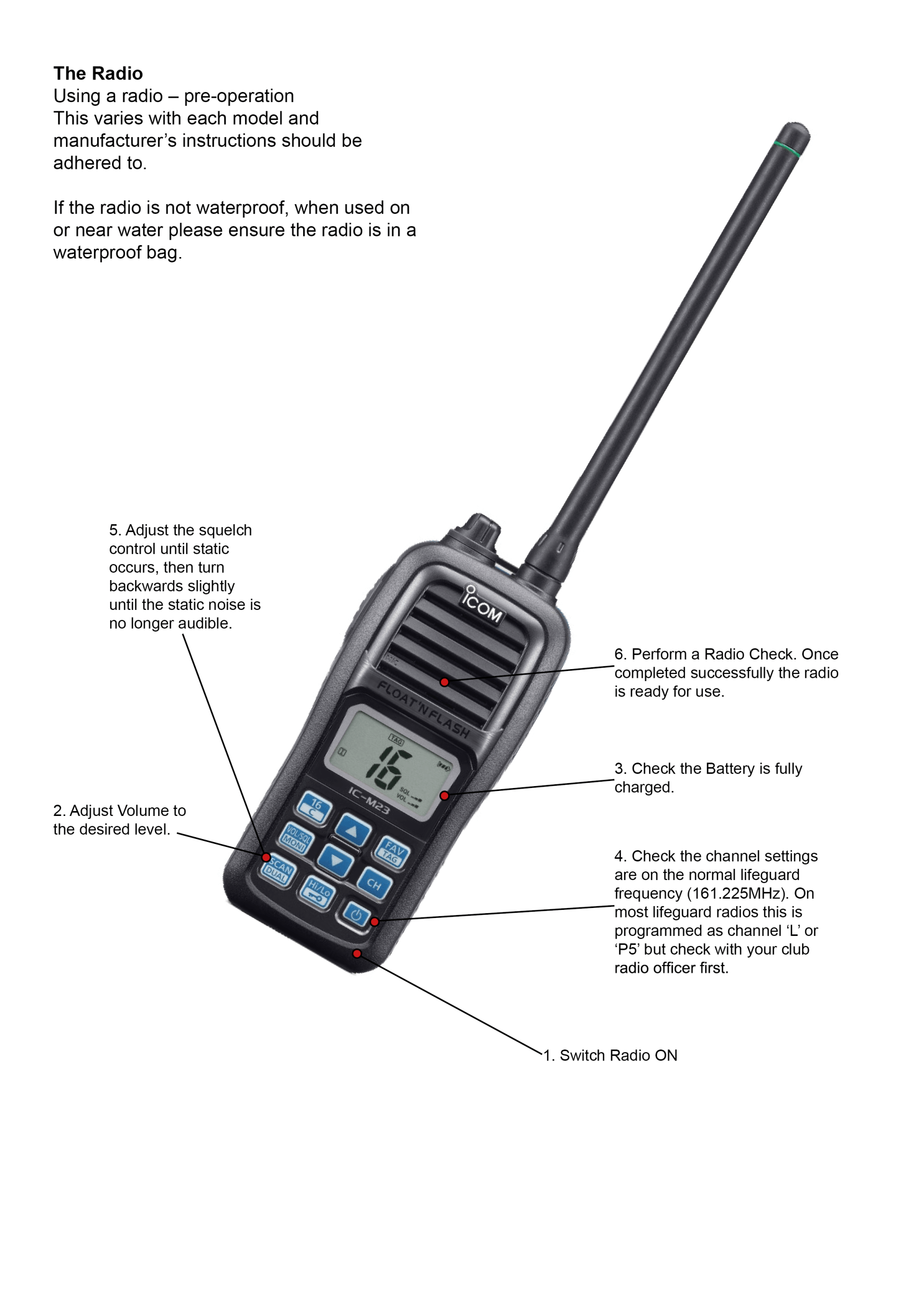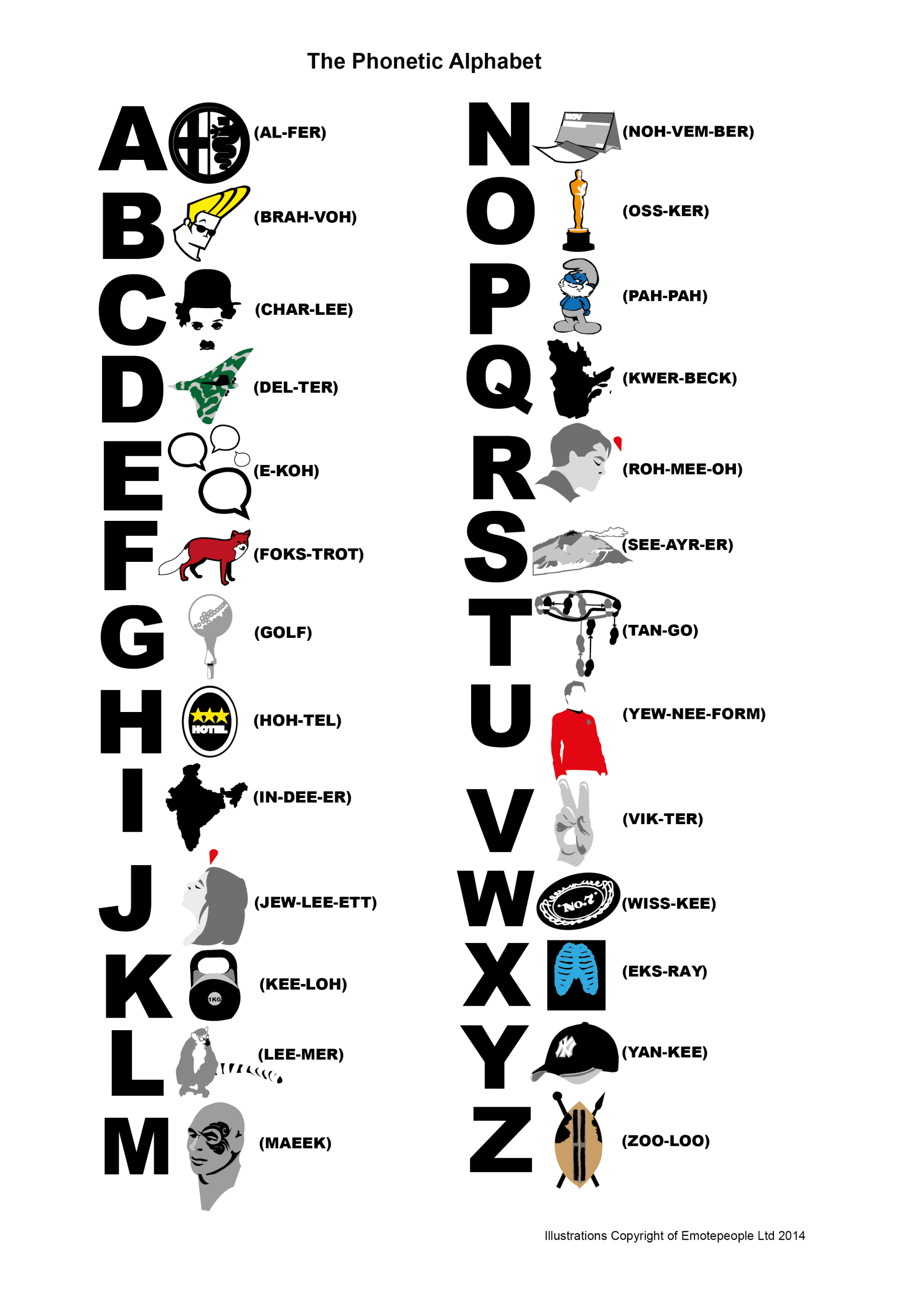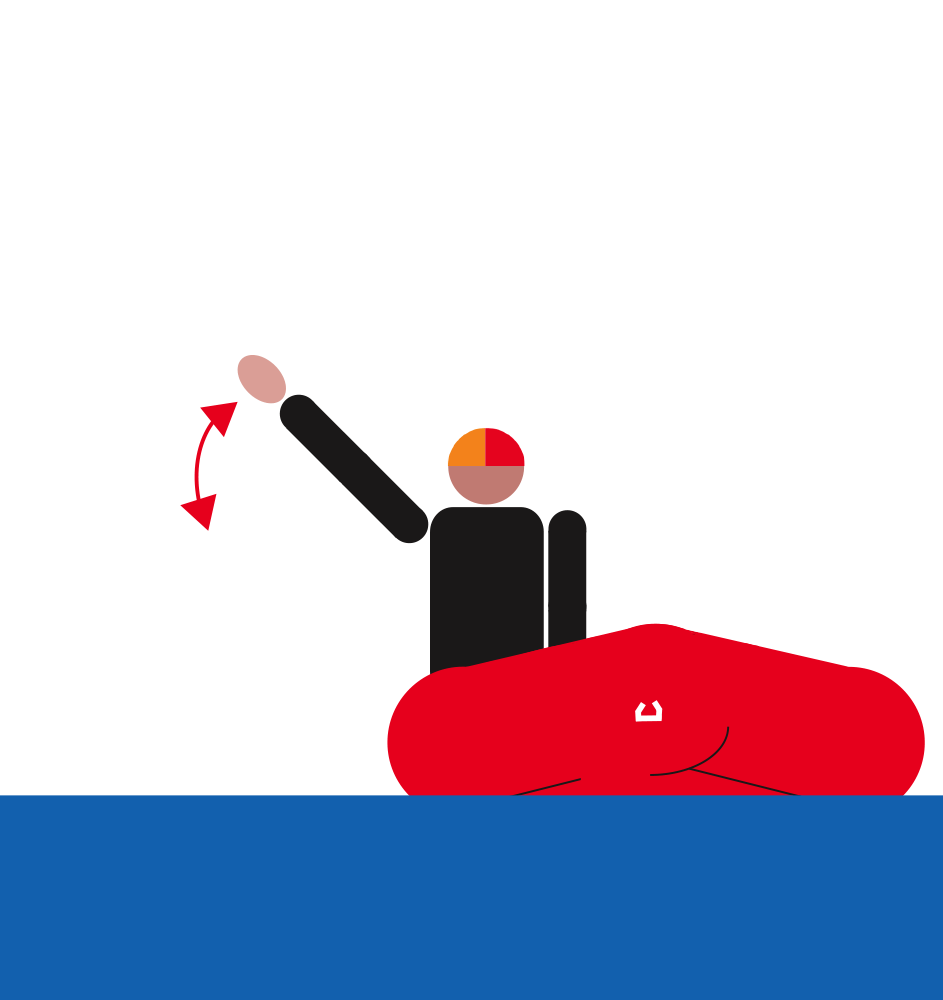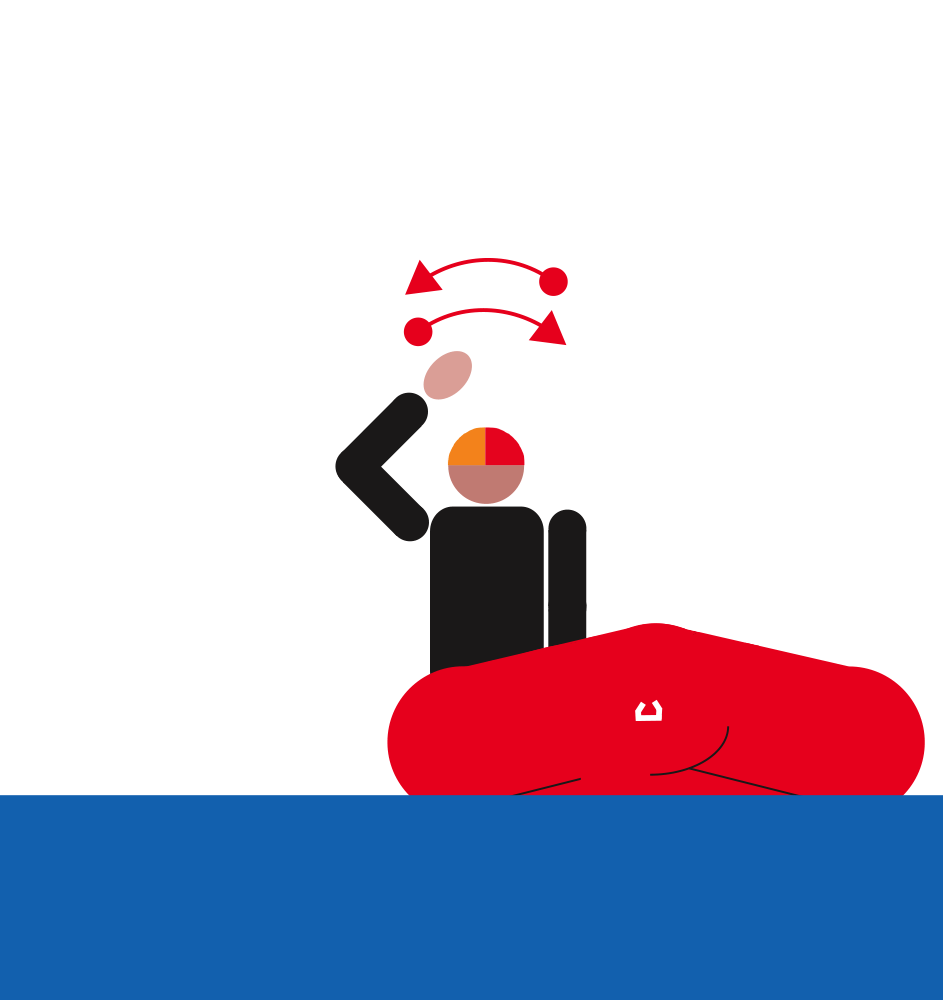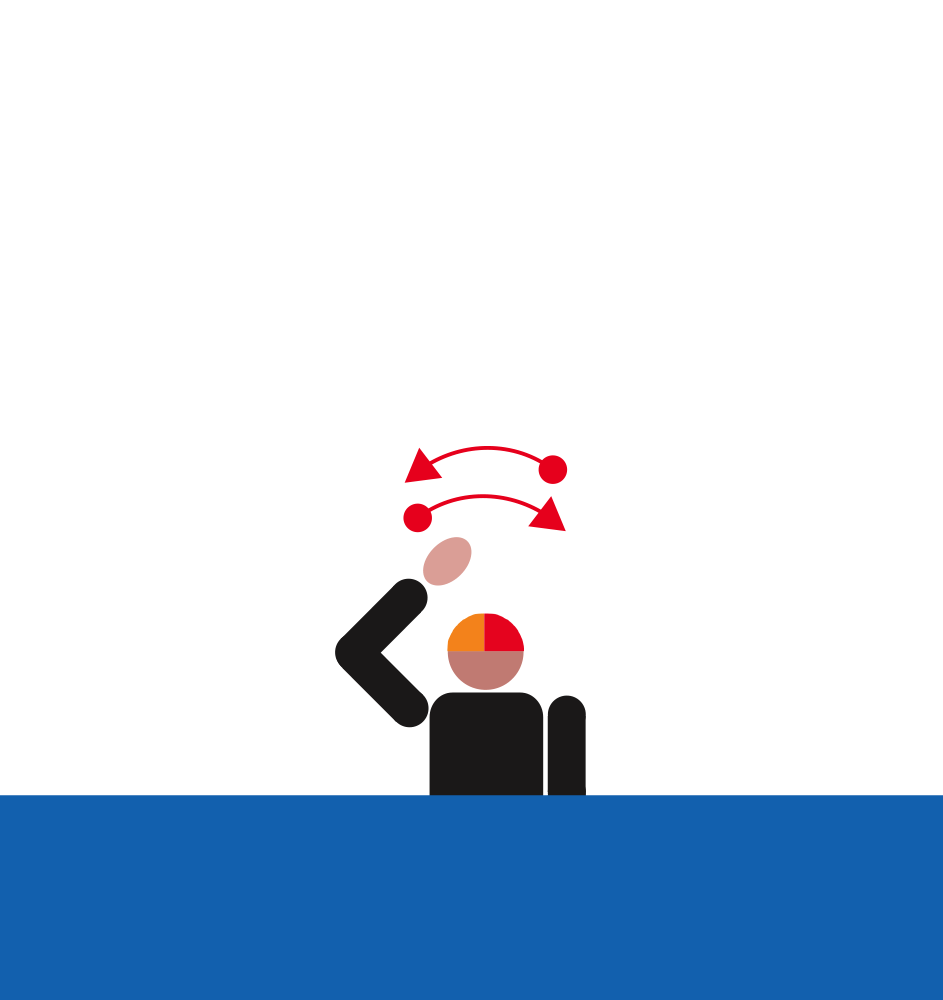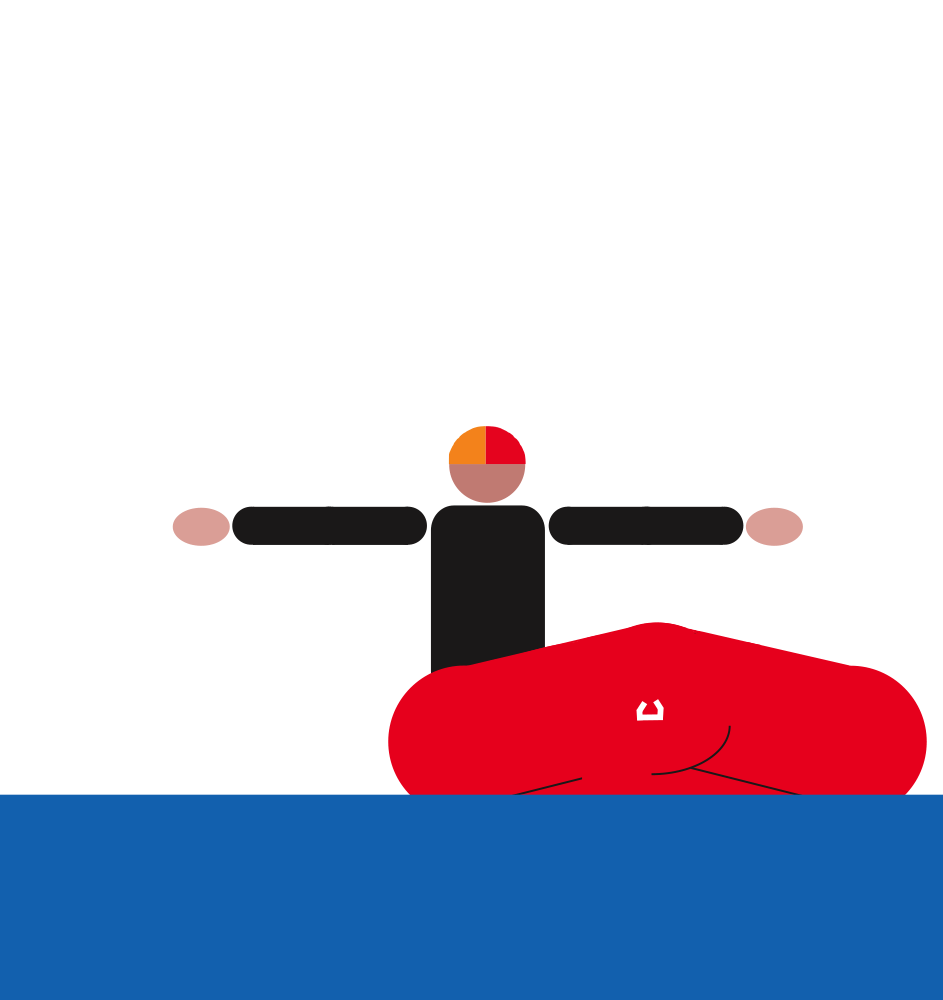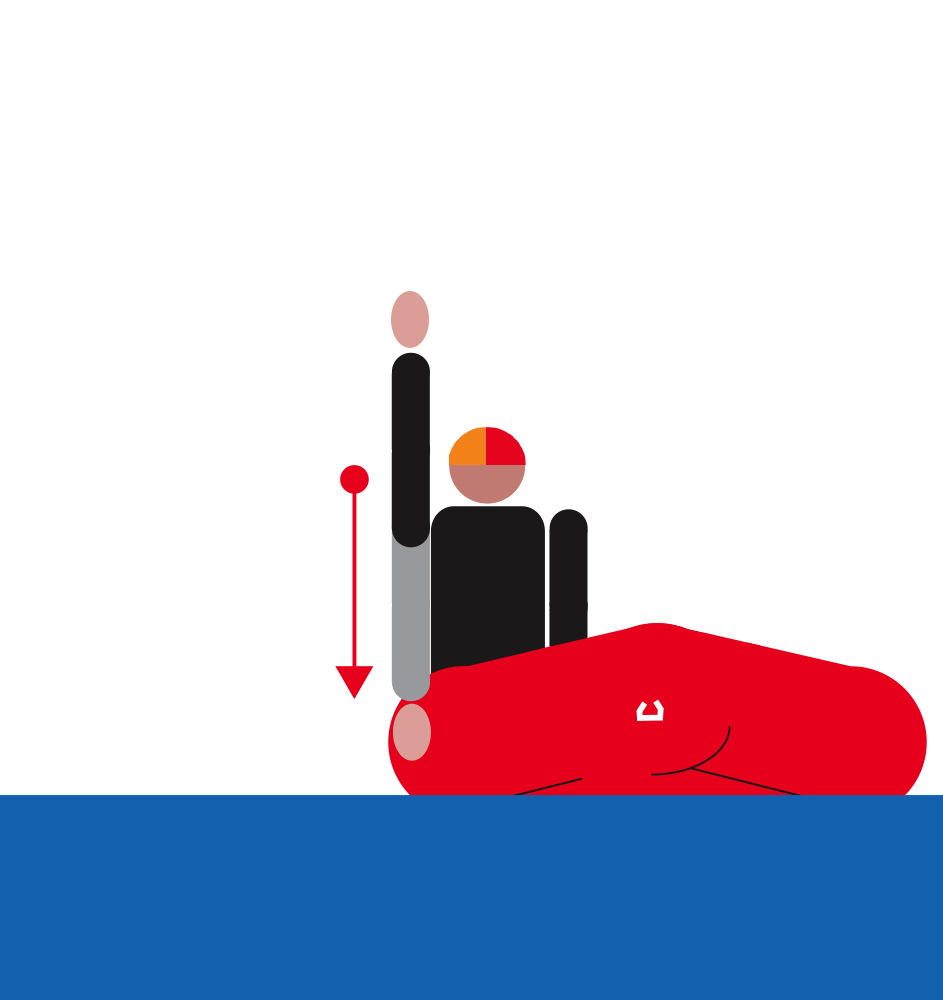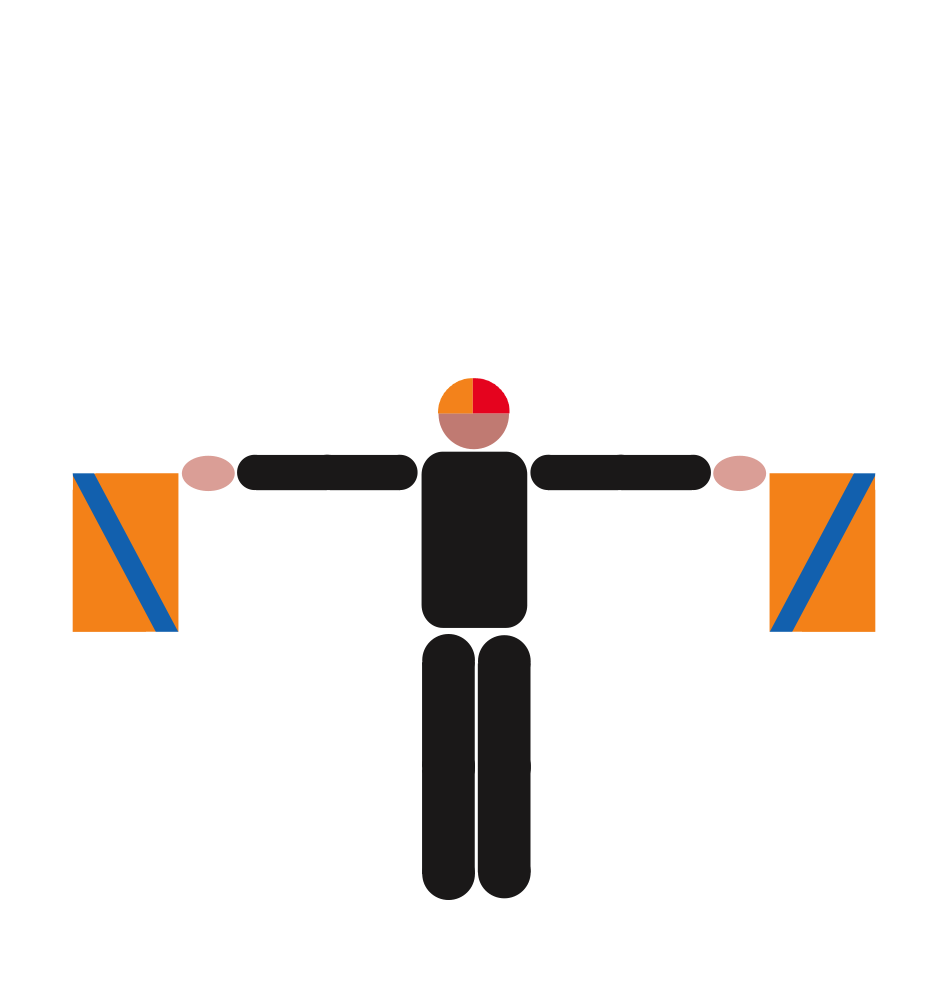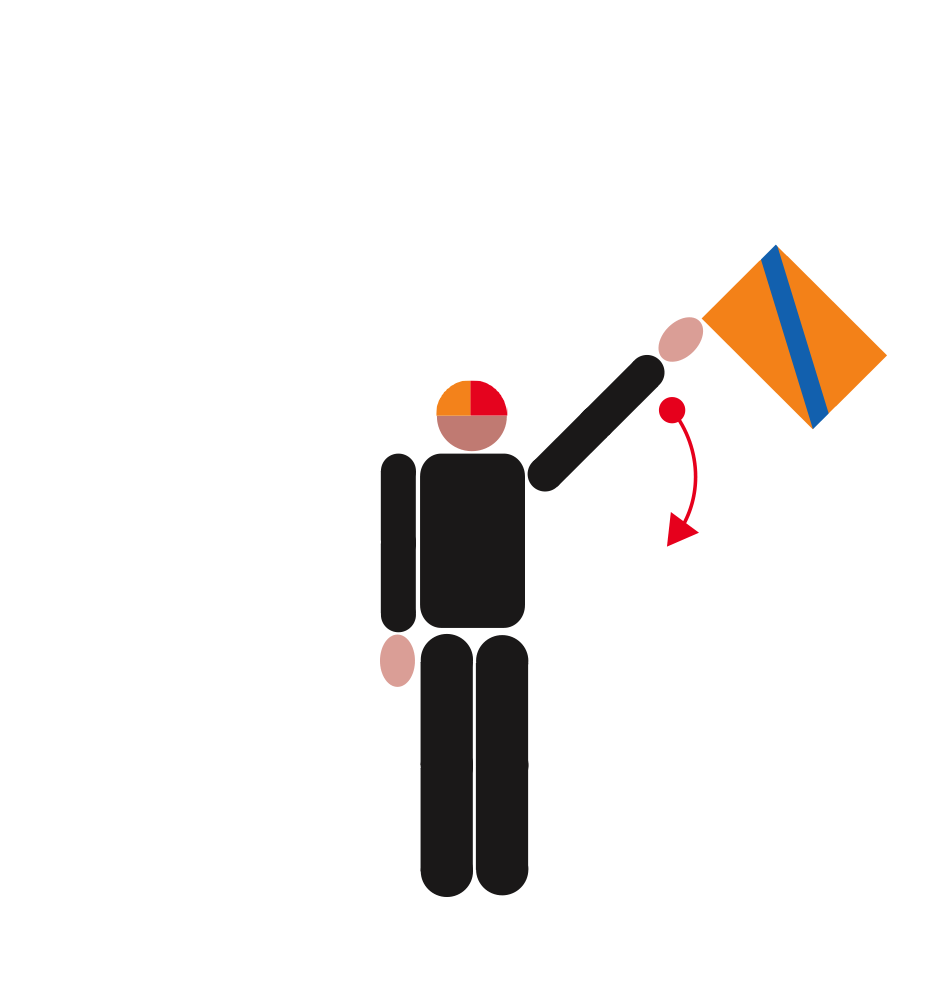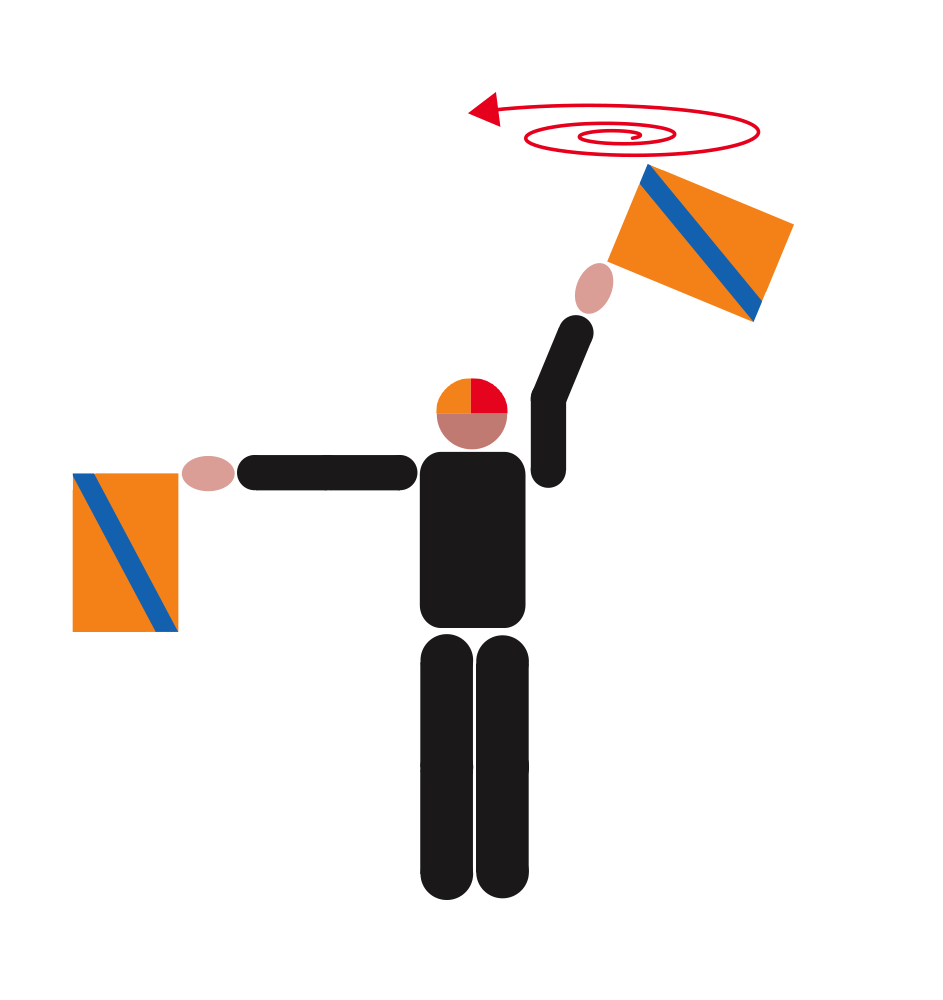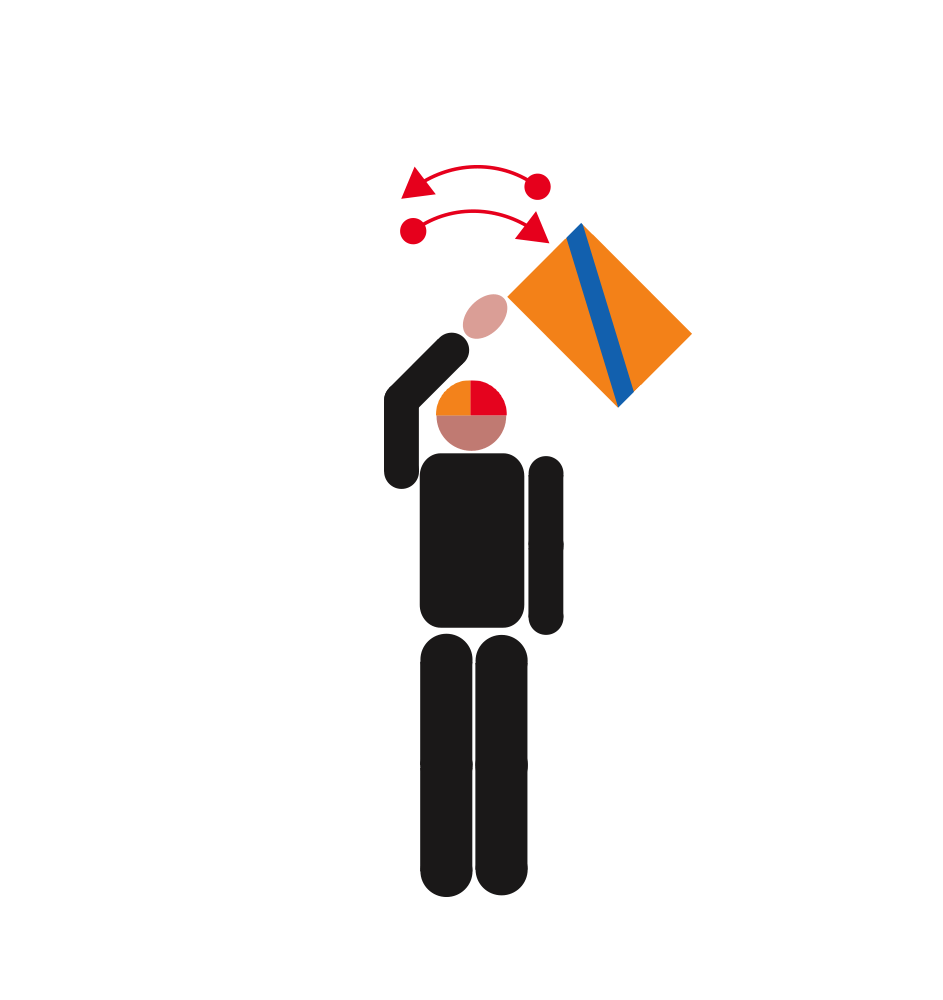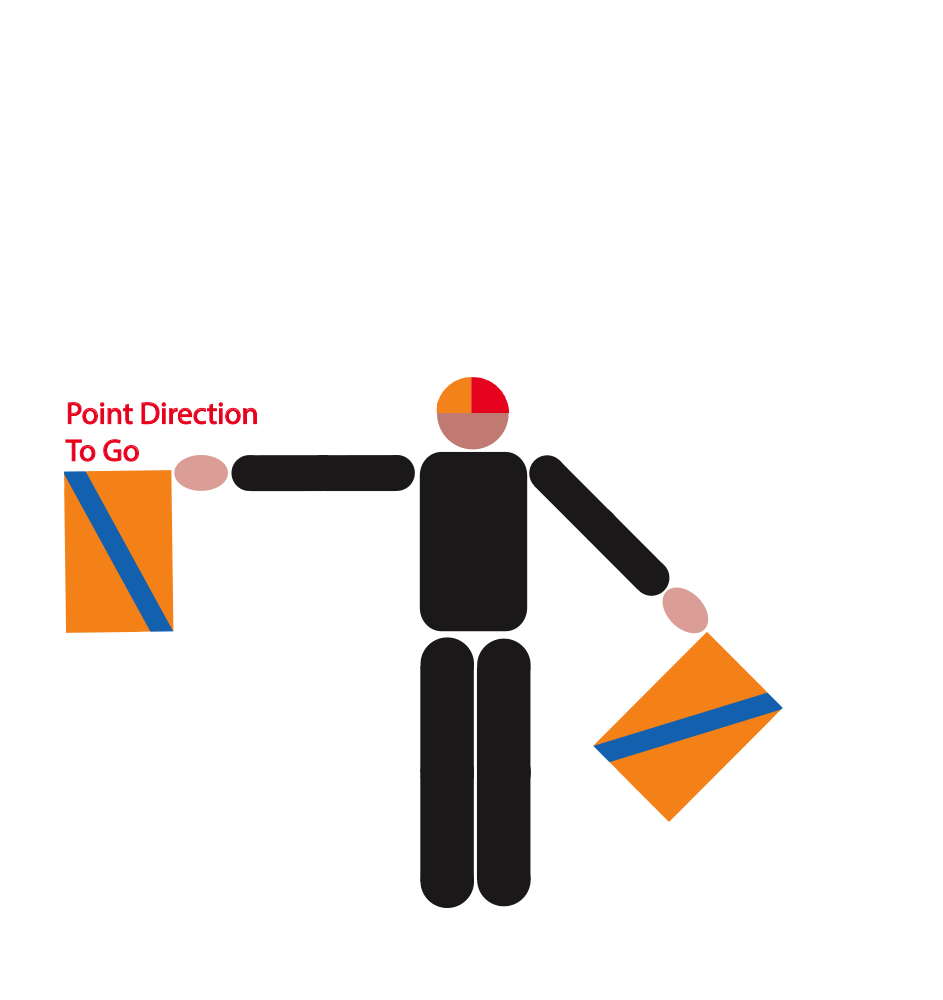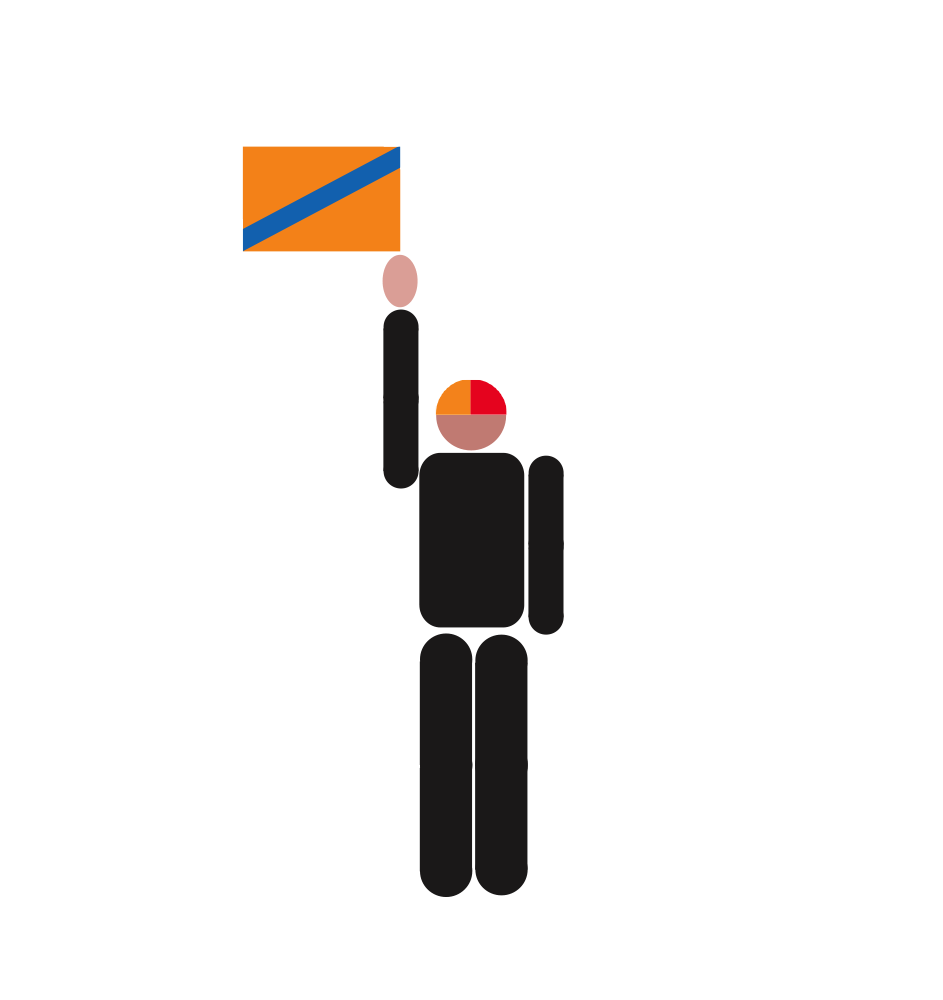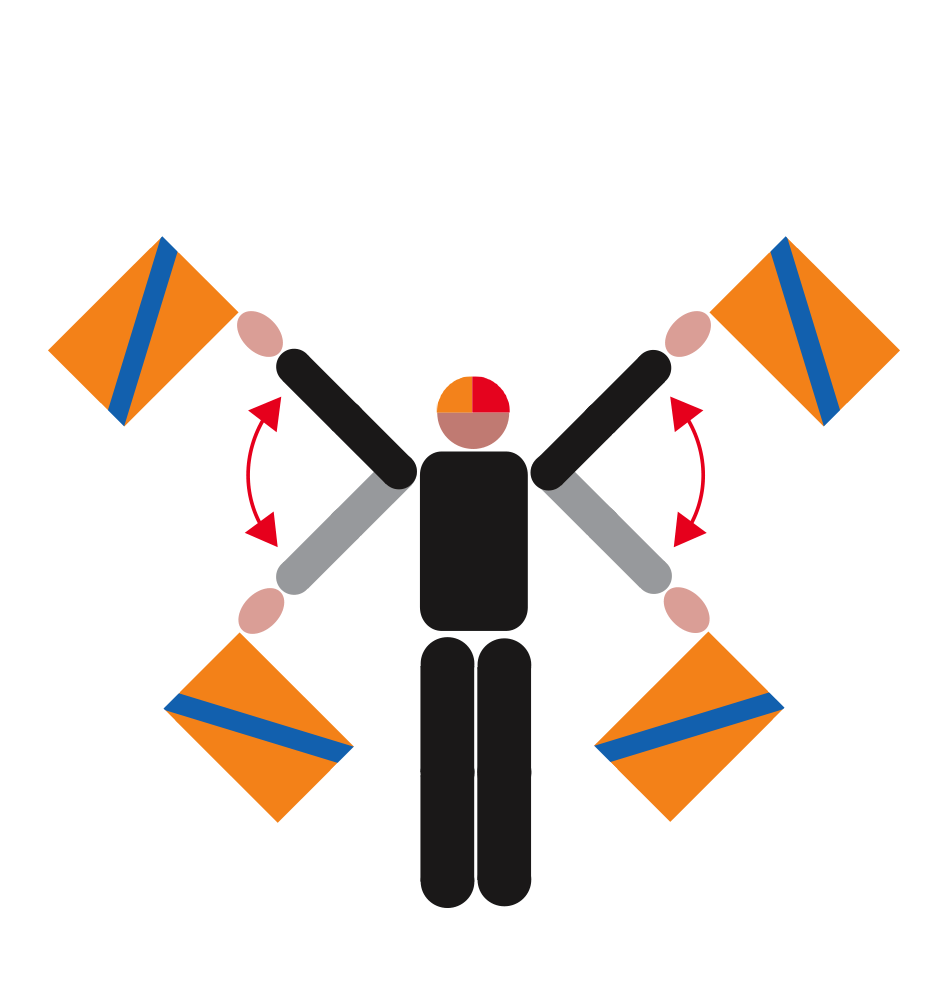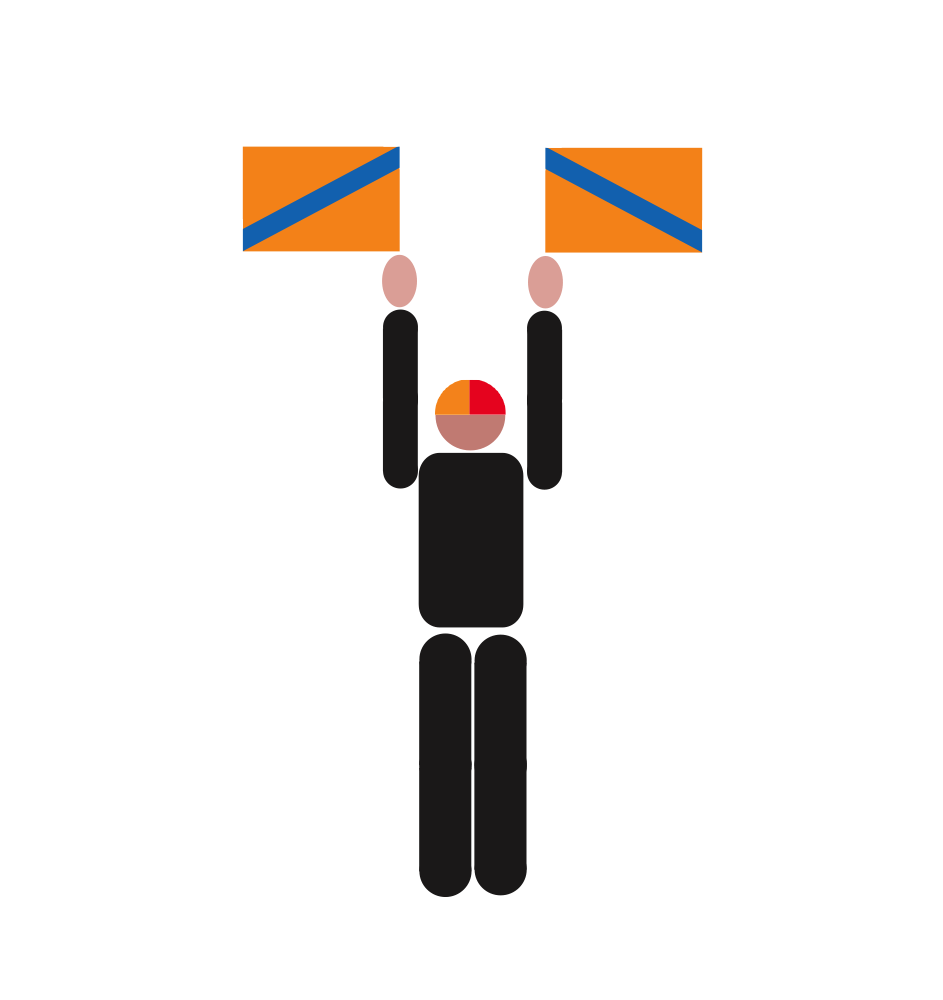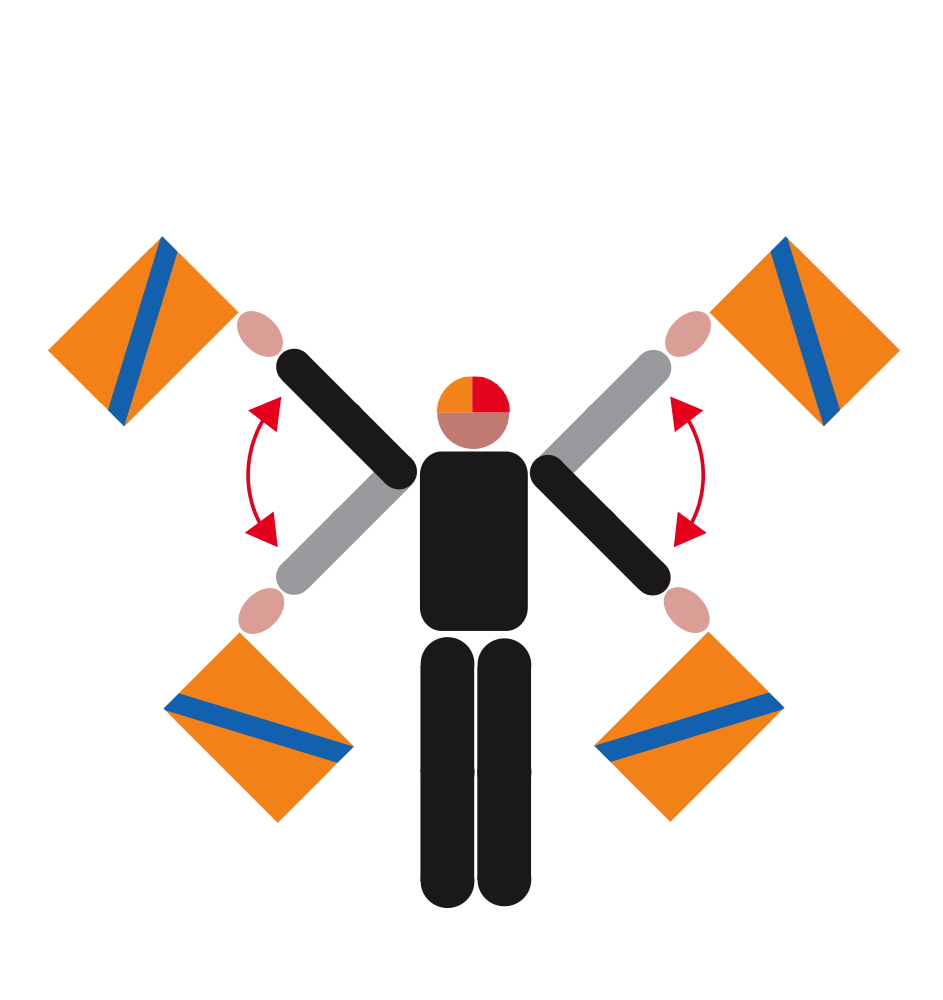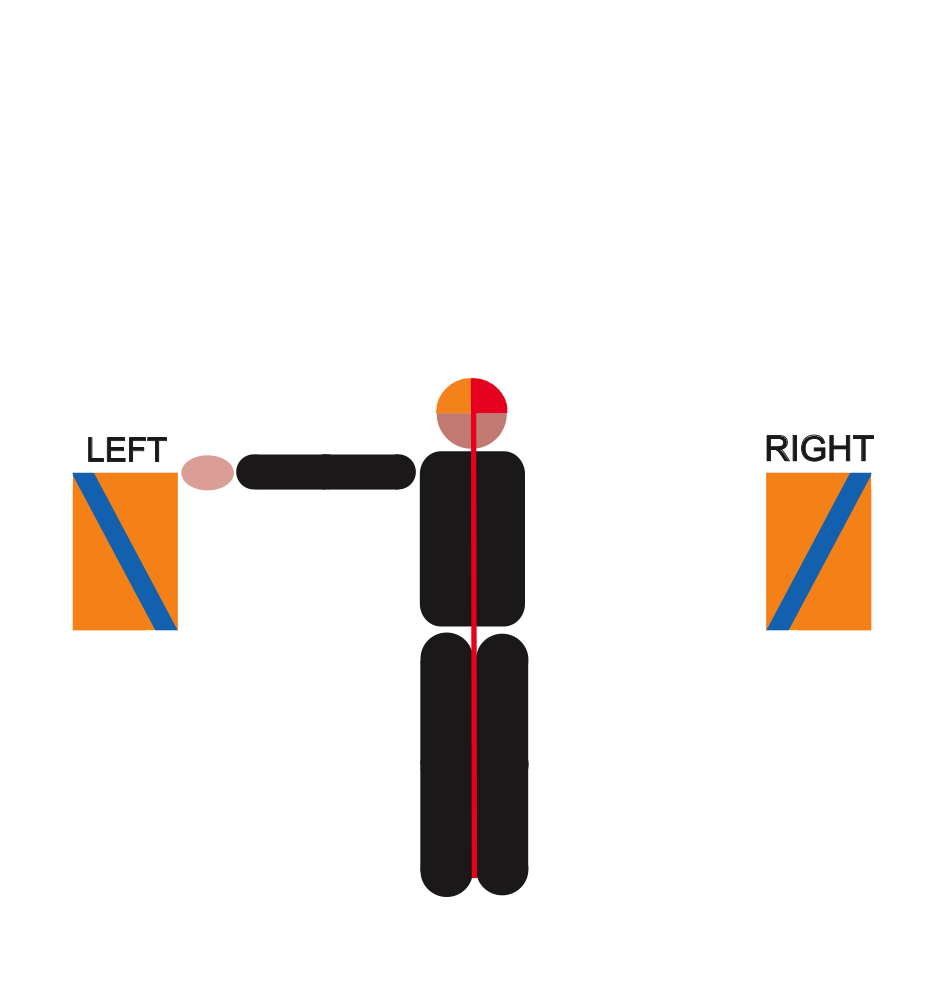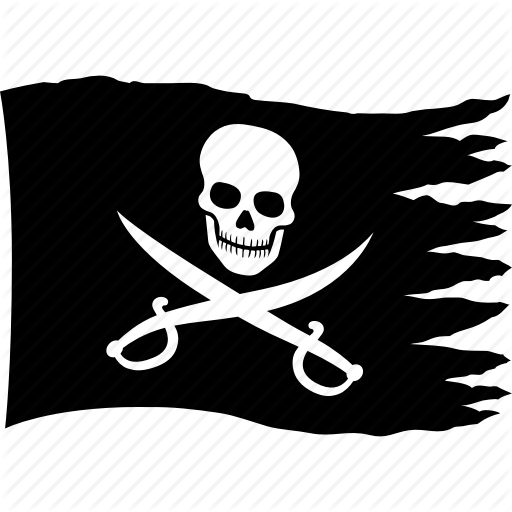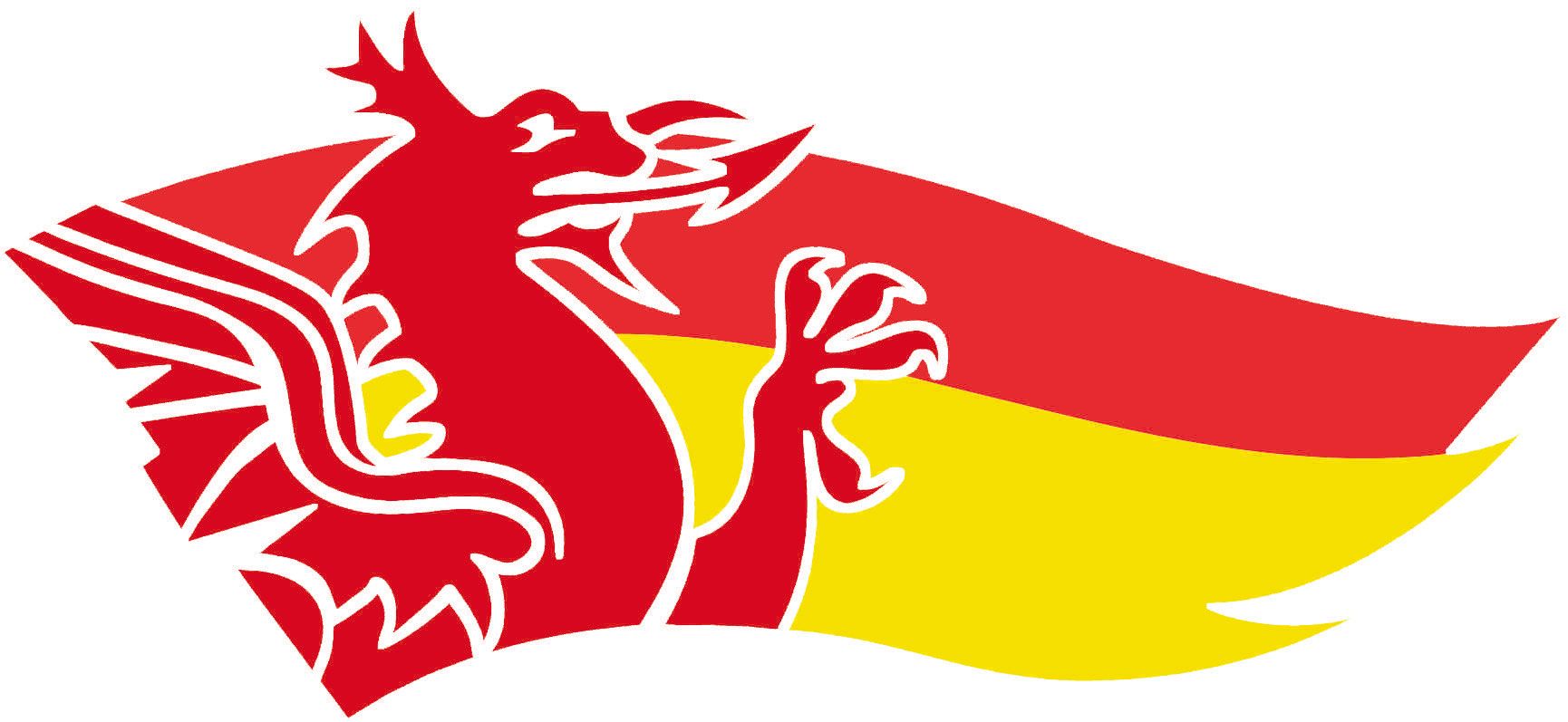COMMUNICATION
In this section you will learn:
- Lifeguard signals.
- Radio frequencies, equipment and maintenance.
- Radio procedures.
- The use of mobile phones.
- Hand signals.
- Radio signals.
Hand Signals - IRB and Crew in Water
Beach to Boat Using Flags
From Shore to Boat when Radio not available or supplementing Radio.
From Shore to Boat when Radio not available or supplementing Radio.
Whistles
Lifeguards may also use whistle signals as given below:- One Blast - Attract the Attention of Bathers
- Two Blasts - Attract the Attention of Another Lifeguard.
- Three Blasts - Lifeguard Taking Emergency Actions.
Radio Communication
The VHF radio has revolutionised the role of lifeguards, allowing many units to become declared facilities and to operate effectively within the national Search And Rescue (SAR) framework. A VHF radio operates in the frequency range 156 – 174MHz and offers good signal strength, clearness and relative privacy of use. However, it can be affected by ‘dead spots’ when the signals are interfered with by the terrain.
Lifeguards have a private radio frequency channel of 161.225MHz issued by OFCOM (www.ofcom.org.uk) and it is usually programmed as Channel L or P5. A private frequency license is required from OFCOM for the use of this channel.
A ‘declared facility’ can also operate on Channel Zero (156MHz), which is monitored 24/7 by HM Coastguard. Permission to use this frequency must be obtained from your local MCA (http://www.dft.gov.uk/mca). For both frequencies, operators should hold the VHF SRC (Short Range Certificate) which can be obtained by attending a one day course, typically run by your local college or RYA centre.
IRBs using VHF radios should also have Ship Portable Radio licence. These can be applied for online with OFCOM. It should be noted that failure to hold a valid licence is a criminal offence and Ofcom’s enforcement team can impose on-the-spot fines. The maximum penalty on conviction is a £5,000 fine and/or a six month prison sentence.
Radio Signals
It is essential for the IRB crew to be able to communicate at all times whilst at sea. The crew should check the coastline in order to observe any signals being given by the beach patrols. The IRB coxswain is responsible for the use of the radio and being in charge of the craft. In the event of the crewperson leaving the IRB to effect a rescue, the driver must have the ability to communicate this to other members of the patrol team.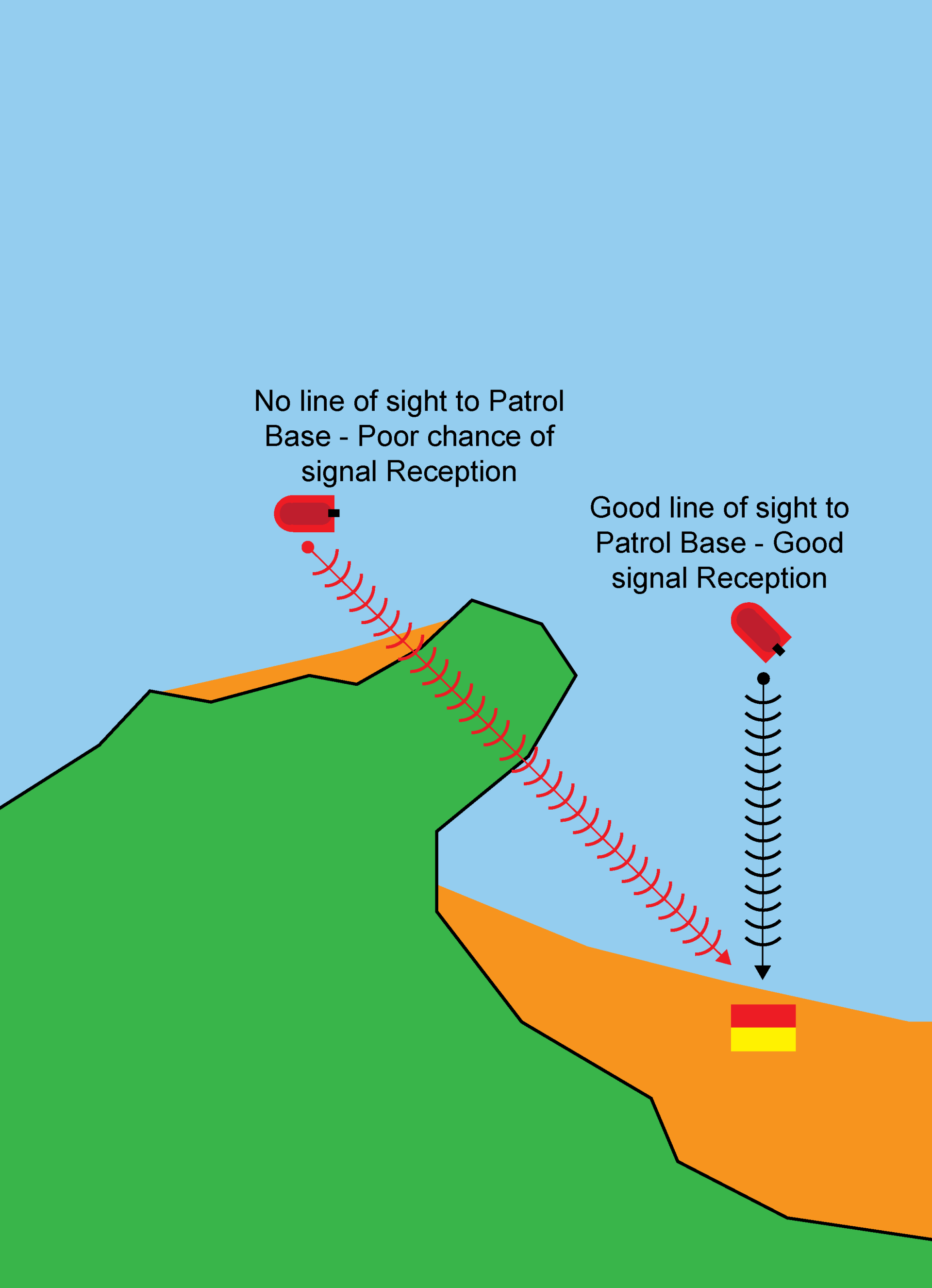
Communicating
Communicating
Be aware of the circumstances of the call sign you are calling. They may be unable to hear because of IRB motor noise or breaking surf etc. They may be unable to answer you because they are carrying out another task.
When using a radio, it is important to use meaningful call sign names but at the same time to keep them as short as possible.
Here is an example of a small number of call signs:
Now that we know how to start a radio conversation, let’s now look at some radio ‘lingo’.
Be aware of the circumstances of the call sign you are calling. They may be unable to hear because of IRB motor noise or breaking surf etc. They may be unable to answer you because they are carrying out another task.
- Brevity - messages should be as brief as
- possible, avoid pleasantries and familiarity.
- Speed of Speech ~ speak steadily at a medium speed, not too fast and not too slow and avoid jargon.
- Volume - do not shout or speak too quietly, ordinary conversation level is ideal.
- Tone - avoid speaking with a monotone; instead speak with a natural rhythm.
- Fluctuating Voice - keep consistent voice by remaining calm and business like.
- Mispronounced Words - pronounce correctly and give each syllable full value.
- Mumbling - speak clearly and distinctly.
- Voice Technique - keep the microphone approximately 100mm (4 inches) away from the operator’s lips.
- Unnecessary Words - care must be taken not to say ‘ums’ and ‘arrs’ after words.
- Language - remember that other radio users can hear what you are saying. Do not use abusive language. MCA monitors Radio Channels to check they are being used properly.
When using a radio, it is important to use meaningful call sign names but at the same time to keep them as short as possible.
Here is an example of a small number of call signs:
- ‘Surf Club’ South ATV
- ‘Surf Club’ North Flags
- ‘Surf Club’ Base
- ‘Surf Club’ IRB
- “Surf Club Base, Surf Club Base this is Surf Club IRB, Surf Club IRB, over”
Now that we know how to start a radio conversation, let’s now look at some radio ‘lingo’.
Prowords
In radio communications, operators use familiar and well known phrases called, ‘Prowords’. As follows here are a small number of procedural words used in marine conversation to improve accuracy and clarity.
Phoenetic Alphabet
This is used to ensure that you are able to get words and spellings across to people. It is given overleaf with some symbols to help you remember it.
In radio communications, operators use familiar and well known phrases called, ‘Prowords’. As follows here are a small number of procedural words used in marine conversation to improve accuracy and clarity.
- Over = You have finished speaking and want a reply.
- Out = You have finished speaking and dont want a reply.
- Correction = You made a mistake and want to correct it.
- Grid = A location grid reference will follow.
- Figures = Numbers will follow.
- Repeat = You need what was said repeating as you did not hear it well.
- I say again = you are going to repeat previous message.
- I spell = Using the phonetic alphabet to spell a word.
- Roger = Message received and understood.
- Time = Time will follow.
Phoenetic Alphabet
This is used to ensure that you are able to get words and spellings across to people. It is given overleaf with some symbols to help you remember it.
The brakets indicate how each is given in pronounciation over the radio. Giving emphasis to each part ensures clarity of understanding and message sending.
Using a Radio in Conversation
- Hold the handset approximately 100mm (4 inches) from your mouth and to the side.
- Think about what you are going to say.
- Ensure channel is not in use.
- Press PTT button, wait 1-2 seconds, then speak clearly.
- Give the call sign of who you are wishing to talk to - To attract their attention say this twice e.g. “Surf Club Base, Surf Club Base”,
- Identify yourself using your call sign - e.g. “This is Surf Club IRB, Surf Club IRB” (twice needed on initial call only).
- Release PTT button when finished transmission and never press transmission button while receiving.
- Wait for a reply - e.g. “Surf Club IRB this is Surf Club Base, over”.
- NB if there is no reply, repeat your call.
- Continue with your conversation using the correct procedures.
- Shield microphone when talking into the wind.
Distress Calls
On occasions, HM Coastguard (MCA) engaged in casualty rescue, may require a cessation or limit to all radio traffic except traffic about the incident/casualty.
This is achieved by the transmission of internationally agreed prowords. If the correct precedence level is not used the rescue operation may be hampered.
On occasions, HM Coastguard (MCA) engaged in casualty rescue, may require a cessation or limit to all radio traffic except traffic about the incident/casualty.
This is achieved by the transmission of internationally agreed prowords. If the correct precedence level is not used the rescue operation may be hampered.
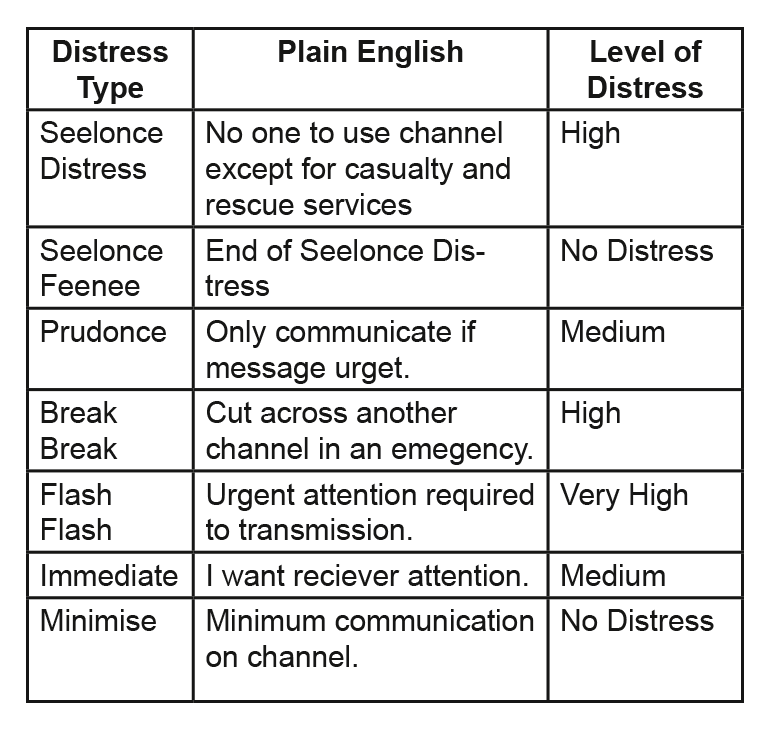
What to do if Radio has Water Damage
And finally, why do we need a VHF radio if we have a mobile phone?
VHF radio is the primary method of communication used by all rescue services at sea. It is therefore good practice to ensure that all IRBs are using the same communication system.
Unlike mobile phones, VHF radios do not rely on network coverage to work. With mobile phones you can easily drop out of reception when you are a mile or so offshore, even if you had a full signal when you were on shore.
Most mobile phones are not waterproof. However, the majority of handheld VHF radios are now totally waterproof and can be left in a wet jacket pocket all day and still work in an emergency.
- Switch the radio off.
- Take off battery pack.
- Put the radio (not the battery) into a bucket of clean fresh water for one minute.
- Shake and pat dry, leave in sun if possible.
- Radio will need to be repaired and sent off to your local VHF radio shop.
- Do not use de-watering agent (e.g. WD40) on the radio.
And finally, why do we need a VHF radio if we have a mobile phone?
VHF radio is the primary method of communication used by all rescue services at sea. It is therefore good practice to ensure that all IRBs are using the same communication system.
Unlike mobile phones, VHF radios do not rely on network coverage to work. With mobile phones you can easily drop out of reception when you are a mile or so offshore, even if you had a full signal when you were on shore.
Most mobile phones are not waterproof. However, the majority of handheld VHF radios are now totally waterproof and can be left in a wet jacket pocket all day and still work in an emergency.
The Radio and the Phonetic Alphabet
